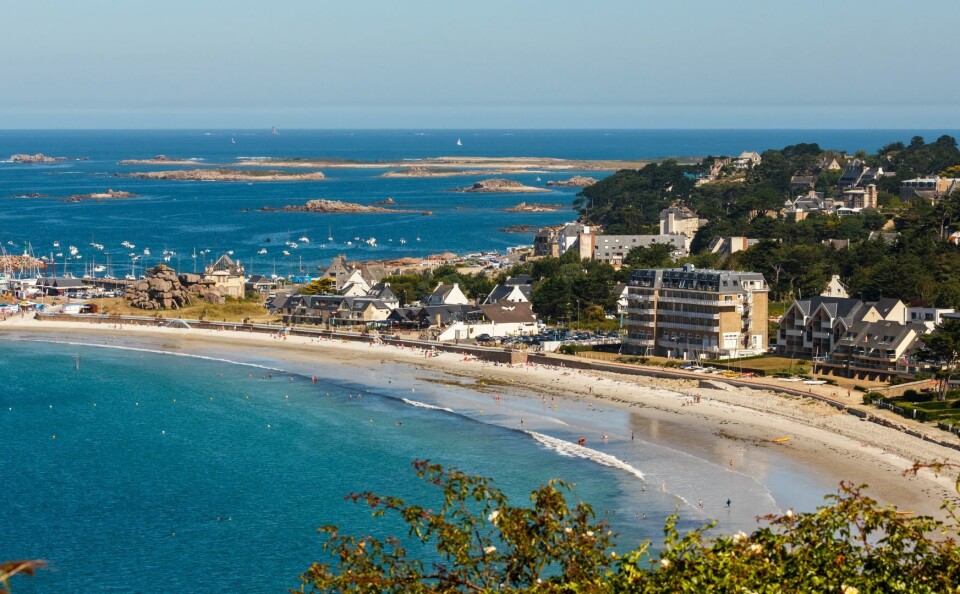-
Britons are the largest foreign community of second-home owners in Nouvelle Aquitaine
See which other departments in the region are popular with British nationals
-
French second-home visa issues raised in House of Lords
British people experience an "expensive and bureaucratic process" to continue living in France
-
Drive to bring 100% fibre coverage to Brittany
Copper-based internet is being phased out even on remote islands
‘House price anger’ cause of Brittany arson attacks not nationalism
Letter to Breton media claims nationalist FLB is back, but local expert explains why recent attacks are different

Recent sabotage and arson attacks on property in Brittany do not mean a resurgence of the Front de Libération de la Bretagne (FLB) of the 1960s and 1970s, a local journalist believes.
Erwan Chartier, editor-in-chief of Brittany newspaper Le Poher, also maintains the anger is directed at Parisians and other French second-home owners, rather than at foreign buyers.
Photo of three people in balaclavas with Breton flag
A letter to media outlets claiming to be from the FLB said the group has been responsible for six attacks since 2022.
The most recent involved setting fire to a second home in Trébeurden (Côtes-d’Armor). Other action took place in Caurel, Landunvez, Concarneau, Morlaix and Le Palais.
The group behind the letter claimed to have “resumed the fight for the Breton people”. The letter included a photo of three people in balaclavas posing in front of a Breton flag.
It was signed by three people, most likely under false names, and continued: “Remaining in the homeland has never been so difficult. The housing crisis is just one of a number of ways the French colonial state has its grip on our homeland.”
The group promised it would “not stand by and watch Brittany disappear without a fight”.
Read more: Property damage, arson, sabotage: Separatists claim Brittany attacks
Attacks on second homes claimed by FLB
The FLB had been inactive since 1981 when then-president François Mitterrand granted amnesties to numerous political prisoners, including 19 members of the FLB.
The acronym has reappeared in recent years in the form of graffiti, and in 2021 the group claimed responsibility for more than a dozen attacks against second homes and “profiteers from the tourism industry”.
Police are investigating whether the new claims are opportunistic or if there is a concrete link to the incidents cited.
Read more: Second home in Brittany sprayed with nationalist graffiti
Violence ended in 2000 after fatal explosion
According to Mr Chartier, however, there is a difference between past attacks and recent action.
“Even in the 1990s, we’d see photos like this one, but the people had weapons, and there were bomb attacks. Here, they are starting fires. It’s not the same.”
In 2006, Mr Chartier published Le dossier FLB, an investigation into the actions of the FLB and the Armée républicaine bretonne (ARB), which replaced it. The groups were behind dozens of attacks, starting in the 1960s.
“Towards the end of the 1960s, they were among the principal regionalist terrorism groups, ahead of the Corsicans,” he said. In 1968, the FLB blew up a garage housing CRS riot police vehicles in Saint-Brieuc.
“Attacks were not intended to kill people but to publicise the group’s political demands. The new FLB seems to be the same.”
Political violence ceased in 2000 when a McDonald’s employee was killed in an explosion in Quévert. The ARB did not claim responsibility, and the main suspects were eventually acquitted.
Mr Chartier, who has also written about other nationalist and regionalist movements in Europe, says the recent action reminds him of Welsh militants who set fire to English-owned holiday homes in the 1980s, though the FLB in the 1960s went further in making bombs.
‘Practically impossible for young Bretons to buy a house’
While the latest generation of militants has chosen to reference the older FLB rather than the ARB, Mr Chartier believes it would be inaccurate to say the old FLB is back.
“I met around 100 activists for my book, but I have no contacts in this new strain,” he said.
“They are trying to capitalise on the real problem of rising house prices. Here on the coast, it is practically impossible for young Bretons to buy a house, even their parents’, which creates significant frustration.”
The tactics echo attacks against second homes in Corsica, where they make up almost 30% of all properties.
In March, the FLNC militant group claimed responsibility for 17 attacks in the last year, including on several second homes.
In Brittany, 12% are second homes, half of which are owned by residents of the region or of nearby Pays de la Loire. 30% of owners live in Ile-de-France, and 7% live abroad.
Related articles
Is now the right time to buy or sell property in France?
Britons no longer the biggest group of foreign homebuyers in France
France’s tug-of-war between its regional languages and official French
























